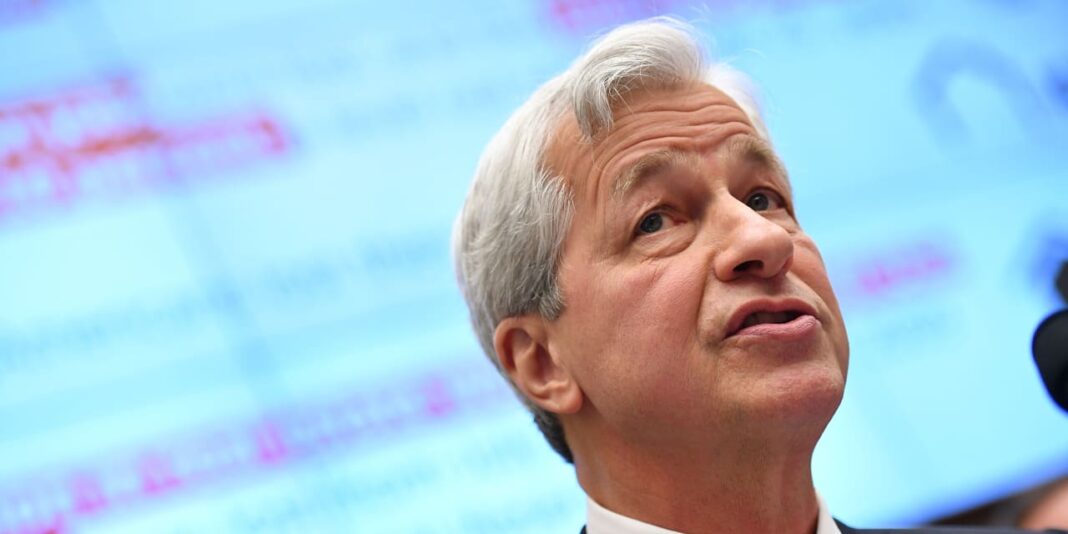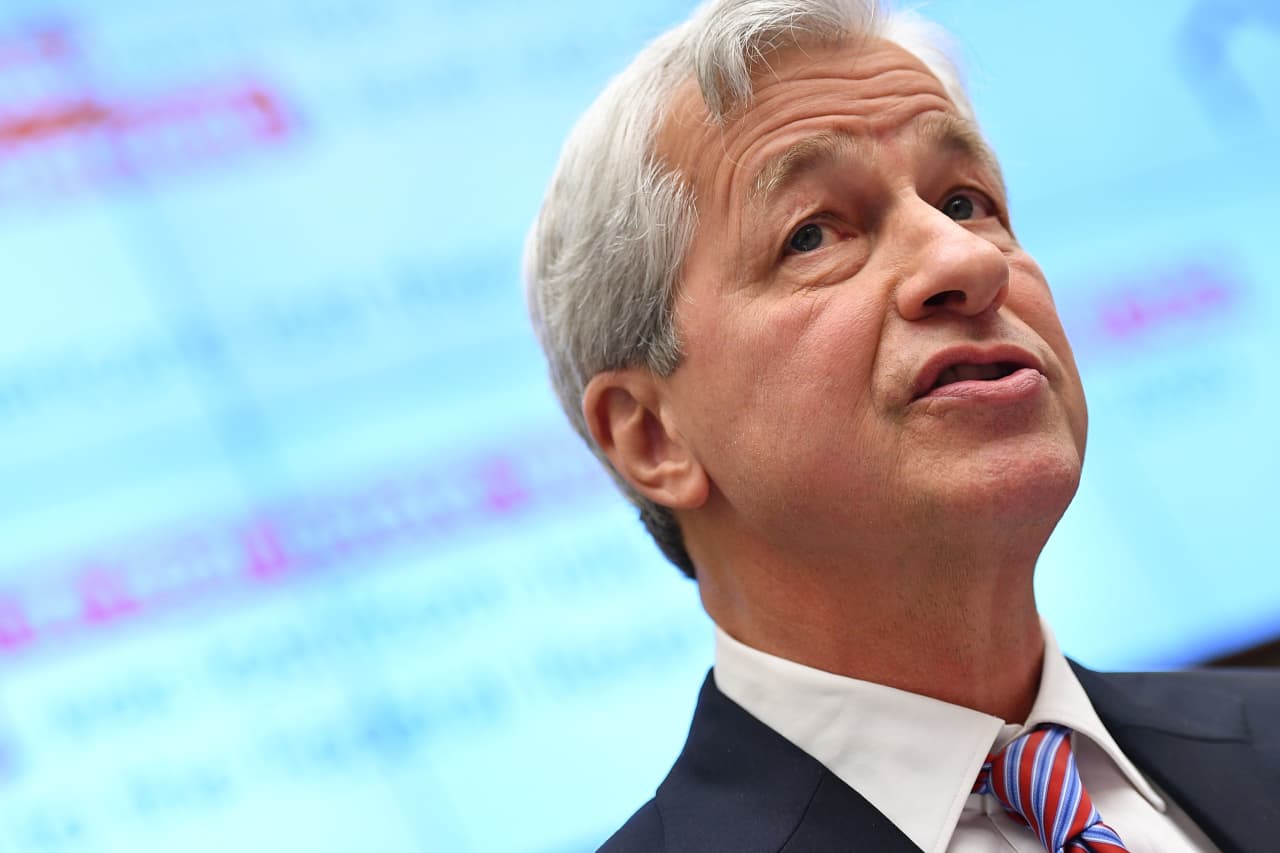“‘When we had the internet bubble the first time around … that was hype. This is not hype. It’s real’”
That’s JPMorgan Chase & Co. Chief Executive Jamie Dimon on artificial intelligence and its prospects for real change.
Dimon told CNBC-TV on Monday at an interview in Miami at JPMorgan Chase’s
JPM,
Global High Yield & Leveraged Finance Conference that compared to the internet bubble of the late 1990s, AI offers more substantial prospects.
Dimon said he’s a “big optimist” for artificial intelligence and that it’s already being used in many ways.
“When we had the internet bubble the first time around, that was hype,” Dimon said. “This is not hype — it is real.”
Asked about the economy, Dimon said financial markets are pricing in a 70% to 80% chance of a soft landing, but his view is “about half” of that.
“Right now confidence is up, equity markets are up, spreads are getting closer to historical lows…the markets are high,” Dimon said.
But he added that the fiscal stimulus and the interest-rate cuts by the U.S. Federal Reserve “may play out over multiple years” and that even if the market stays out of a recession this year, the economy could still waver after that.
“I’m kind of cautious,” Dimon said.
Asked about bank exposure to office real estate and multi-family housing that caused jitters in regional banks recently, Dimon said if the economy avoids a recession, “it’ll be more like whack-a-mole…instead of a domino effect” on banks with exposure to weak pockets of the business.
While data centers, health care and warehouses are performing relatively well in the commercial real estate sector, office exposure could be challenging for some banks, he said.
But any rising defaults will be a part of normalization process for banks after a sustained period of artificially low interest rates, he said.
“There are things ahead that are concerning,” Dimon said. ”If we don’t have a recession most people…will be able to muddle through.”
Some banks “will have a much bigger real-estate problem than others” if there’s a recession, he said.
Asked about any potential threat posed by Capital One Financial Corp.’s
COF,
proposed $35 billion acquisition of Discover Financial Services
DFS,
Dimon said the two companies should be allowed to combine and that the deal will not hurt competition.
Dimon also reiterated opposition to the proposed Basel III endgame capital requirements for banks and said the biggest risk to the financial system is cyber crime, not capital levels.
While he said he supports the Dodd-Frank legislation that laid out a path for increased banking regulation, the latest capital requirement proposal “has gone way beyond that,” he said.
Regulators did not fully consider whether proposed new capital rules would impact more routine transactions, such as farmers buying hedges to protect against swings in crop prices, he said.
Asked about JPMorgan Chase’s commitment to its branch network, Dimon said a million people a day walk into a branch.
“They are more like advice centers,” he said. “You have mortgage-loan officers, small-business consultants, wealth advisers — it enhances our business in all kinds of ways.”
Also read: JPMorgan’s global investment banking chief departs for Citi a month after top rank-reshuffle

